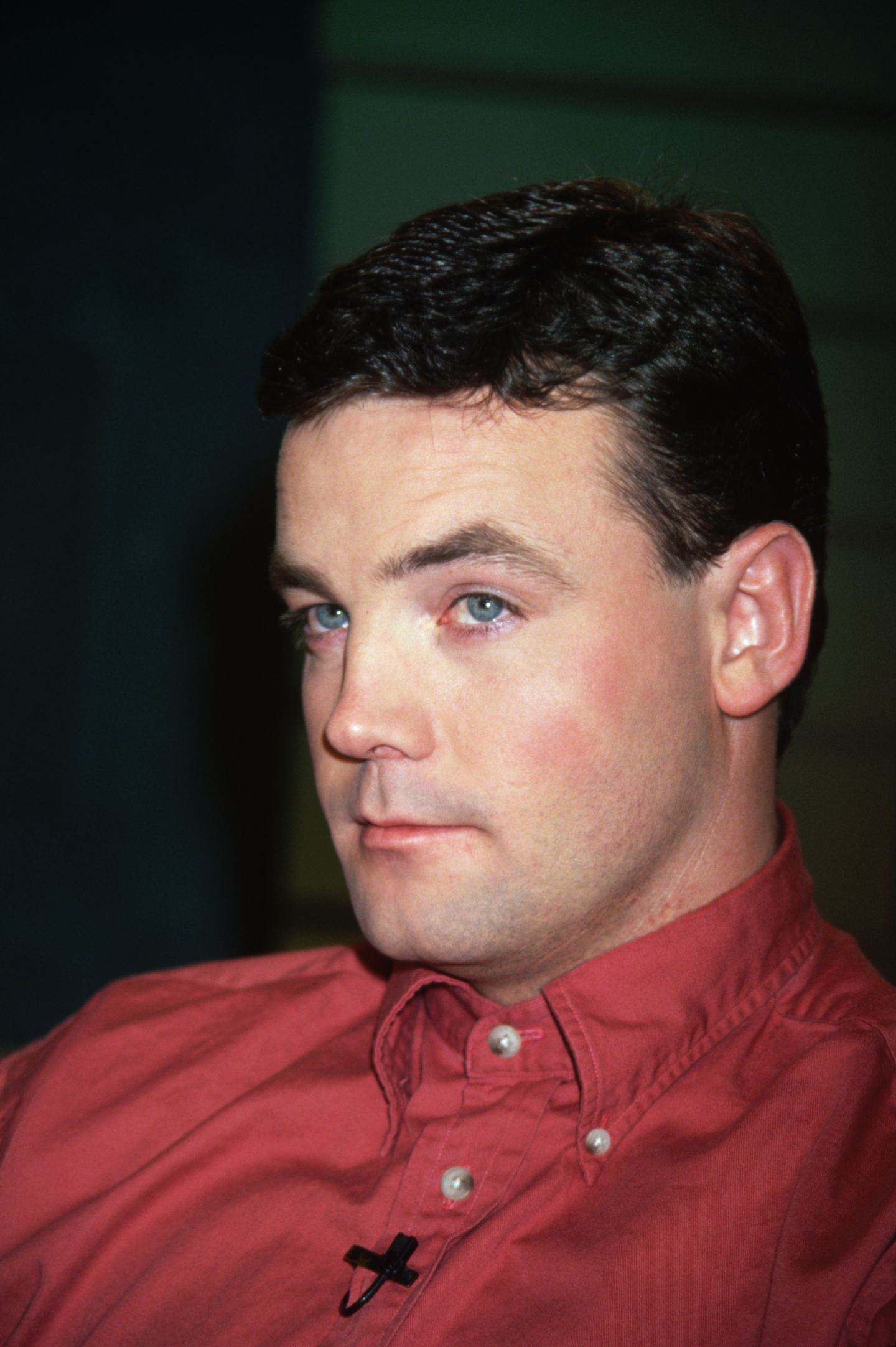Her name became a running joke. In 1993 Lorena Bobbitt was a 23-year-old Venezuelan manicurist who was married to John Wayne Bobbitt, a former marine. They met at a Marine Corps ball—he described her as “shy” and “innocent” and the couple married soon after, allegedly because her green card was set to expire. But their relationship was volatile from early on and in separate reports both John and Lorena revealed that their marriage was filled with verbal, emotional, and physical violence.
“Forced sex excited him and I would just cry,” Lorena said in an ABC News interview during the time of their infamous marital assault trial.
Videos by VICE
Yet, despite the overarching allegations of domestic assault, the serious nature of the trial didn’t stop comedic television skits, newspaper comics, and radio shows from making fodder of the trial hinged on a woman who assaulted her husband, acting, allegedly, in self-defense.

When Lorena went to trial for cutting off her husband’s penis—after he allegedly beat and raped her—while he was sleeping, the country thought it was outrageously amusing. Lorena fulfilled the ideal image of a “jealous wife,” whose “American dream had been destroyed”—and John’s castration, the ultimate form of emasculation, was the sensational punishment for being a bad husband.
But as Amazon’s new four-part docuseries, Lorena, alleges, Lorena—now using her maiden name, Gallo—wasn’t vengeful, but acting in self-defense. The film directed by Joshua Rofé (Lost for Life), sets up how years of abuse calloused into post-traumatic stress disorder (PTSD) and a constant fear for her life and supports the idea that Gallo’s actions were a harrowing look at how women are subjected to their abusers, not a Letterman punchline.
Gallo spoke to me on the phone and explained why she chose to publicly relive the trauma that made her notorious. “I want people to understand that they’re not alone,” Gallo tells Broadly. “And [victims] want to be heard. This issue doesn’t go away.”
Lorena debuts in the era of the #MeToo movement, which continues to push a national dialogue that reveals how widespread sexual assault is. Currently, one in three women has experienced some form of intimate partner violence, which often leads to anxiety and/or PTSD, according to the National Coalition Against Domestic Violence.
While the narrative is changing for Gallo and others like Anita Hill and Monica Lewinsky who brought sexual abuse and misconduct to the forefront in the 1990s, the defamation they faced at the height of their media attention is irreversible. The intention of the film, Gallo says, is that future survivors may find fortitude from hearing her retold story.
The most powerful parts of Lorena—and the most heartbreaking—come during her court testimony. In the film, Gallo relives her tumultuous marriage to John, describes scenes of sexual assault, and the alleged forced abortion she endured. When she recounts the abuse, her body quakes; she hyperventilates. She is simultaneously the bravest and most terrified person in the room.
“It’s not too long ago that marital rape wasn’t a crime,” Gallo points out. She believes this lack of protection was key to keeping her ex-husband out of prison. In the years after Gallo’s trial (they were both acquitted in separate cases related to the assault), Bobbitt was convicted of misdemeanor domestic battery against an ex-girlfriend in 1994, charged with battery against his third wife, and was also found guilty of harassing another woman in 1999. “To me, laws have changed, but there are still gaps in the law,” Gallo says.

Gallo contends that some of the most glaring gaps are protections for survivors without legal status. “I feel that immigrant women don’t have the voice,” Gallo says, reflecting on her own experience. Born in Venezuela, fear of deportation further complicated her relationship with Bobbitt. “As a military wife, my paperwork was clean. Yet he found a way to threaten me with deportation.” Gallo lamented that these fears trap survivors and paralyze them into silence. “They’re afraid that police will take them back to their country of origin.”
There is tension and a feeling of dread when Bobbitt comes on camera in the present day. For a moment, Lorena seems poised to steer into the direction of a ‘he said, she said’ narrative, giving Bobbitt a chance to clear his name. But thankfully, that’s not what happens. By the end of the series, Bobbitt reveals himself as a potential pathological liar and a serial abuser.
For More Stories Like This, Sign Up for Our Newsletter
I asked Gallo how she felt about seeing her ex-husband appearing on the screen. “I wanted him there,” Gallo replies emphatically. She personally requested he be included in the docuseries. “I wanted people to see what an abuser looks like. I wanted people to see him for who he is. And they do.”
During Lorena’s final scenes, we see Gallo behind the wheel, a tentative smile on her face. “When you see me driving, there’s a hidden message that I wanted to share,” she says, “I want victims and survivors to get behind the wheel to take care of themselves. I want to tell them there is hope.”




